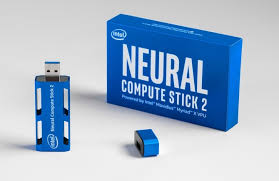
It all depends on local conditions.
- The "last mile" loop will be different in Europe, in Africa, North America or Australia. It shapes your need for speed and range, as well as required safety (how long will it take to get assistance in case of need).
- In rural applications you rarely need strictly personal transport. On average it is a 2-5 people and some cargo, with occasional trailer.
- Serviceability is an important factor.
For Eastern Europe, where I live, I would recommend a slow (~45km/h) pickup (2 + 1000kg) - the one pictured below. For extended range you can add a PV canopy and even a small gas-powered genset for emergencies.

...which is ideally / eventually the usecase for the coin I am thinking about.
So, do I understand you correctly that we are talking about several "tokens" based on the same chain? I know there are some open chain frameworks (ETH is waaay too capitalist for my liking) that could be utilised - after diligent scrutiny.
Meanwhile, in another subthread, we got to (probably central) question, whether basic risks: double-spending and forgery, could be addressed without blockchain, in a publicly transparent and verifiable way.
One technical remark:
if you have your currency fixed to say imaginum and there is only a fixed supply of imaginum in the world, but the economy grows twice in size, you end up with 100% inflation.
Should read "deflation".
Other than that, I agree - within your assumptions of a well run governemnt. However, there is a whole lot of people within solarpunk realm who do not believe thet "a well run government" can exist (detailed definitions aside) and do want government (governance body) beyond the scale of a community that can directly control it. Thus, any such government-backed currency would still be local. Which puts us back to the field one, lacking the intergovernmental exchange carrier.
Getting a bit more theoretical, I am in favor of two currency-backing values that are IMO elementary and not substitute: energy and time. We see many "timebank" systems run locally, but even if we can say that this is the currency created (though commitment) by individuals, they still follow the pattern of central clearing office, sometimes with added reputation systems.
Energy - which essentially all solar, by the way - is mostly used via proof-of-work schemes, and could probably be used through proof-of-useful-work filter, which to me looks like a good way to fund/support public works.
This way or another, whatever is the source of the currency, we always need to address the risk of double spending and forgery. In absence of a commonly trusted authority (bank or government), public trust and control can be exercised through an openly available, tamper-proof and distributed ledger. Now, blockchain is one way to implement it. Can we imagine something else?
tl;dr: No authority, no blockchain - then what?
Partly, I answered here: https://slrpnk.net/post/14539748/11723741
As for the scope of it, I see it as a bridge solution for the stage where we still have to interact with capitalist realm, but can already start building our own (post-capitalist, solarpunk, anarchist - whatever the name) real economy, so we need an inter-community exchange token. There should (nor will) not be a uniform solution for every community involved, so we need something to use as a mediating value carrier.
As such, it may retire at some point in favour of something better suited to the new world needs, or survive - like gold today - in mostly symbolic role.
Trust is a choice. There will always be people who choose not to trust - that is their right and they should not be alienated because of that.
I see two usabilities of altcoin in current (and mid-term) solarpunk context:
- Proof-of-useful-work for primary circulation means that coins can be created in exchange for resources (i. e. storage and processing power) made available to SolarPunk initiatives.
- Secondary circulation makes it possible to transfer funds between distant communities, without any need for a deep trust or even knowledge. The chief matter is to avoid double-spending, of course.
Thank you for mentioning GNU Taler.
I have freshly read an interesting article https://www.leafscore.com/blog/the-9-most-sustainable-cryptocurrencies-for-2021/ (the link is weirdly recycled, it is a 2024 piece), showing that there is a number of altcoins (and I use this term deliberately - no ETH or BTC included) trying to solve both the technical and political faults of the initial concept. I believe that, if one designs a currency properly in political sense, the technology can be adjusted as well.
As far as I know I am the only person trying to explore this topic as defined, at least in Polish context. So far I found two documents that are close to my idea, f lacking a live collective to keep them up to date and to support newcomers.
Keep in mind that, depending on local legal system, a co-op may not need to be registered as such. In Poland, for example, social enterprises can assume various legal forms, my favourite beng a civic association.









Do you really ONLY see disability on this picture? I see different people with different needs. It's about needs. People have different needs. IF you are more than happy to alienate them, because their needs offend you, you are giving them the right to alienate you. And finally everyone gets alienated. Is THIS Solarpunk for you?